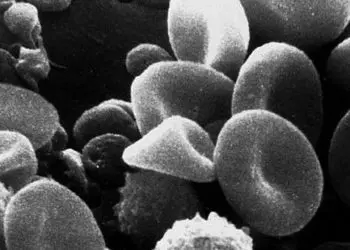Pfizer: Beqvez Gene Therapy Decreases Bleeding Rates in Hemophilia B Patients
- Hemophilia B patients given Beqvez had a decreased incidence of total bleeding
- Beqvez reduced the use of routine factor IX infusions
The Latest
A recent Phase III open-label, single-arm study conducted by Pfizer in collaboration with Spark Therapeutics investigated the safety and efficacy of a gene therapy named Beqvez in adult male patients with moderately severe to severe hemophilia B. Spark Therapeutics was responsible for conducting all Phase 1 and 2 studies, while Pfizer assumed responsibility for pivotal studies, regulatory activities, and potential global commercialization. The clinical trial named the BENEGENE-2 study found that during follow-up, there were decreased annualized bleeding rates in patients when they received the gene therapy compared to when they were treated with routine factor IX prophylaxis. The results showed that patients generally tolerated Beqvez well, with no reports of death, serious adverse events, or thrombotic events.
Physician’s Perspective
Hemophilia B is a rare genetic disorder that prevents normal blood clotting for people who cannot generate the factor IX protein, causing them to bleed more frequently and profusely. According to the World Federation of Hemophilia, 38,000 people are affected by this disorder. Patients with hemophilia B struggle with the commitment and lifestyle disruptions of regular (factor IX protein) infusions, spontaneous bleeding episodes, painful joint damage, and mobility issues. Traditionally, patients need to receive routine infusions of Factor IX treatment to prevent and control bleeding. However, this current standard treatment method does not alter the underlying disease process. With a gene therapy infusion, patients can receive a one-time treatment that helps them produce their own Factor IX. This alternative active source of endogenous Factor IX helps improve bleeding outcomes and reduces the need for Factor IX infusions. The single gene therapy injection is expected to be effective for at least 10 years.
Molecular Targets
Hemophilia B is caused by mutations in the F9 gene which carries instructions for making Factor IX, a protein involved in the formation of blood clots. Beqvez delivers a highly functional version of F9 to liver cells, where blood clotting factors are produced. The functional F9 gene is called Padua and encodes for a version of Factor IX that has a 5-10 greater clotting activity than the endogenously produced protein. The F9 gene is packaged inside a specialized adeno-associated virus, surrounded by an outer shell capsid that is taken up by liver cells. Once the F9 gene component is taken up by the liver cells, the endogenous machinery can begin to produce the enhanced version of the Factor IX protein.
Company History
Pfizer is an American pharmaceutical and biotechnology corporation headquartered in Manhattan, New York City. In addition to Beqvez, Pfizer also has gene therapies under investigation in phase 3 trials for hemophilia A and Duchenne muscular dystrophy. The company is also testing anti-tissue factor pathway inhibitors to treat people with hemophilia A and B.
Further Reading: https://www.pfizer.com/news/press-release/press-release-detail/us-fda-approves-pfizers-beqveztm-fidanacogene-elaparvovec
©2024 2 Minute Medicine, Inc. All rights reserved. No works may be reproduced without expressed written consent from 2 Minute Medicine, Inc. Inquire about licensing here. No article should be construed as medical advice and is not intended as such by the authors or by 2 Minute Medicine, Inc.







